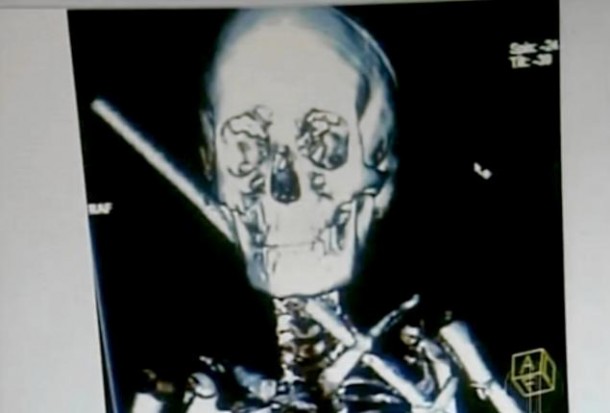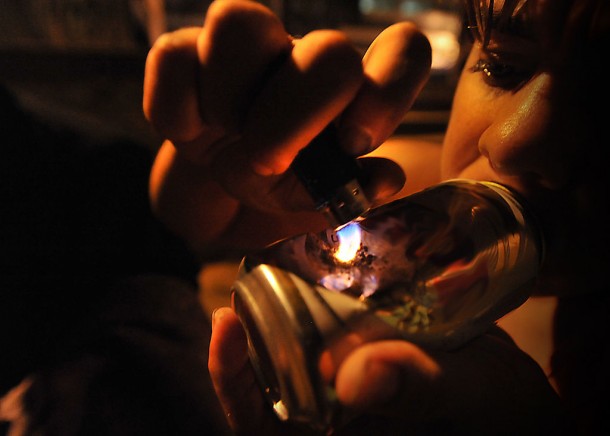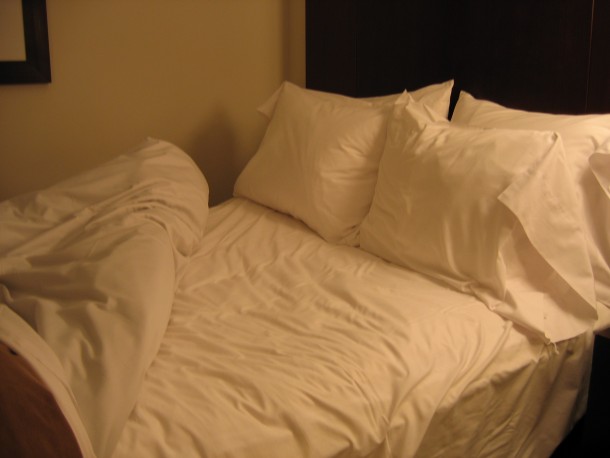
Image from NY Daily News showing the extent of Silva’s injuries … and his good luck.
A boy in Brazil has miraculously survived falling from a tree and being impaled by a 2ft iron bar.
Earlier this month, Weverton Silva – a 10-year-old boy from Macaé, a city in the Rio de Janeiro state of Brazil – had his left side punctured by a metal spike, which then re-emerged close to his right ear (see x-ray).
The incident happened as Silva fell from a tree while picking guava fruits, landing on a rod that was jutting out of a wall below in the process. Defying all odds, the metal bar somehow missed his heart and lungs as it pierced from one side of his torso to the other.
Fire fighters arrived on the scene and took the boy, with the iron bar still protruding from both sides of his body, to a local hospital. Once in hospital Silva underwent a five-hour operation to have the spike removed by a team of doctors.
One of those doctors, Rodrigo Chicralla, told Brazil’s Globo TV it was a miracle the 10-year-old survived. The bar, which was eventually removed in one piece, only narrowly missed all arteries and vital organs, had it punctured any of these then the accident would have almost certainly proved fatal.
Dr Chicralla said: “[The bar] had passed through basic arterial route. It is difficult to arrive at a hospital with such a situation and survive… I think it was just God [that meant Silva survived the incident].”


